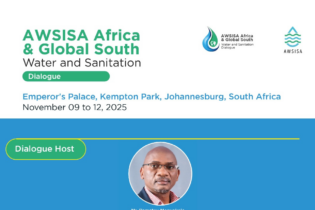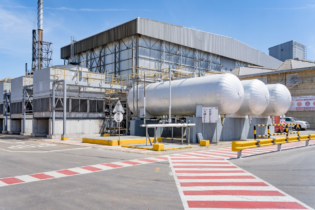The most basic of all human rights – water – is also a central element in global affairs and the development agenda with wide implications on international peace and security, the Deputy Secretary-General of the UN told participants at the World Water Summit held in London.
“Around today’s world, we see how a lack of access to water can fuel conflict and even threaten peace and stability,” Jan Eliasson pointed out as he delivered the keynote address on “Tackling the Global Water Challenges: What’s Next?,” to the Summit, which was organised by The Economist. The Deputy Secretary-General stressed the need for “hydro-diplomacy, or water diplomacy” as degraded access to water stemming from climate change, or population pressure risks creating social tensions, political instability and intensified refugee flows. The Summit features several presentations and panels including on the challenge of urbanisation, sustainable approaches to agriculture and sanitation and a senior-level discussion on water security. Participating in the Summit are ministers of water and the environment from Uganda, Singapore, and Mongolia, as well as representatives of non-governmental organisations, the private sector and several publications.Water as a weapon of war
During his address, the Deputy Secretary-General recalled seeing water used as a weapon of war during the Darfur conflict in Sudan.“On one trip in 2007, to the North of Darfur as we arrived in a village, we were met by a group of women chanting, ‘Water, water, water.’ The enemy militia had poisoned their well, they said,” Mr. Eliasson told Summit participants. And most recently, the Islamic State of Iraq and the Levant (ISIL) has also exploited access to water to expand its control over territory and to subjugate the population. And from Tajikistan to Ethiopia, upstream/downstream tensions related to large hydroelectric projects remain an issue. But water tensions are not exclusive to conflict ridden and developing countries alone. In recent years, the world has witnessed a surge of water-related crises from the dried up eastern basin of the Aral Sea to the unprecedented three-year drought in California.
The role of urbanisation
In addition, rapid urbanisation has put huge pressure on water use and infrastructure, making water an increasingly scarce and expensive resource, especially for the poor and marginalised. “Let me share with you some numbers. Demand for water is projected to grow by over 40 per cent by 2050. An estimated 1.8 billion people will soon live in countries or regions with water scarcity,” the Deputy Secretary-General said. There is good news, however. Thanks to global mobilisation inspired by the Millennium Development Goals (MDGs), two billion people have benefited from access to improved water sources, a result of smart investments and policies.“Still, let us remember that 750 million people today do not have access to safe drinking water,” said Mr. Eliasson.







